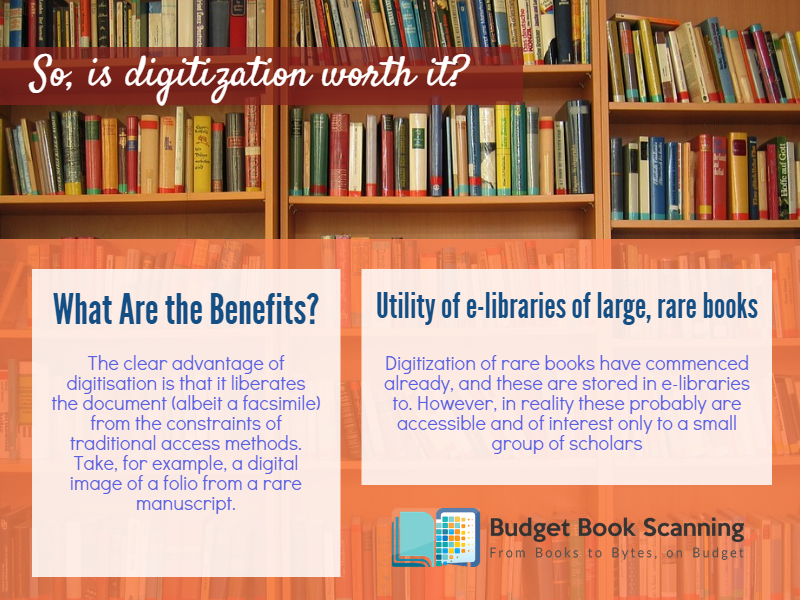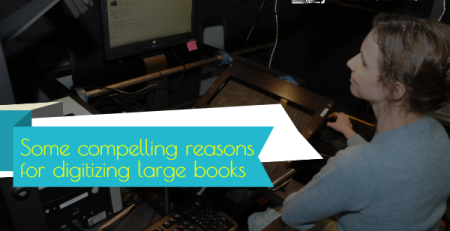Is The Digitization Of Rare Books Really Worth It?
Every day we come across people who are busy with their gadgets and devices. When we ask them what are they doing; they say that they are reading something. Digitization of books have made them readable anywhere and at any time? Everyone is digitizing books nowadays, from the largest national libraries to the smallest institutions.
Before proceeding, we think it is a good idea to pin down exactly what we mean by “digitization.” A strict definition might be the conversion of analog media to digital form (hence the fact that in many books “conversion” and “digitization” are synonymous). The original media or source material might be printed text or images, but we should never forget that it could also include audio and video (or, time-based media). Here we must look at the cost of digitization, the benefits derived from it, and then, most importantly, compare the act of digitization with other possible scenarios.
So, is digitization worth it?
What Are the Benefits?
The clear advantage of digitisation is that it liberates the document (albeit a facsimile) from the constraints of traditional access methods. Take, for example, a digital image of a folio from a rare manuscript. Traditionally users may only be allowed access to the original unless they have an appropriate reader’s card, and a good and validated reason. Most importantly they would have to physically go to the manuscript itself, which may involve travel, time, and/or money.
However, if a digital facsimile of the book was hosted on the Web, for example, and made freely accessible, then everyone can access it from the comfort of his own home, office, or school. This example also leads us to the second-cited advantage of digitization, namely preservation. Although the preservation of digital objects is a discussion in itself, the above scenario does imply that the original item might be handled less, or at least that the curators would have an extra reason for restricting access to the print manuscript.
Utility of e-libraries of large, rare books
Digitization of rare books have commenced already, and these are stored in e-libraries to. However, in reality these probably are accessible and of interest only to a small group of scholars. Researchers find these e-libraries useful, as they now have access to a major research tool covering all subject areas.
However, unless the general public get access and start using these, the “worth” of digitization would come under some suspicion. It is undoubtedly true that many of the digitization projects that have been undertaken so far do concentrate on rare or unique items of undoubted scholarly value, but outside of a few subjects, they have little consequence to most readers. More publicity is needed to make these rare books popular among the masses. However, experts argue that such easy accessibility would reduce the rarity of the original piece. It is not actually possible to state which side has more appeal. Yet we can conclude that digitization of rare and large books is a boon with its own drawbacks.
Related Post: The Genius Who Invented A Book Reader Over Four Centuries Ago











